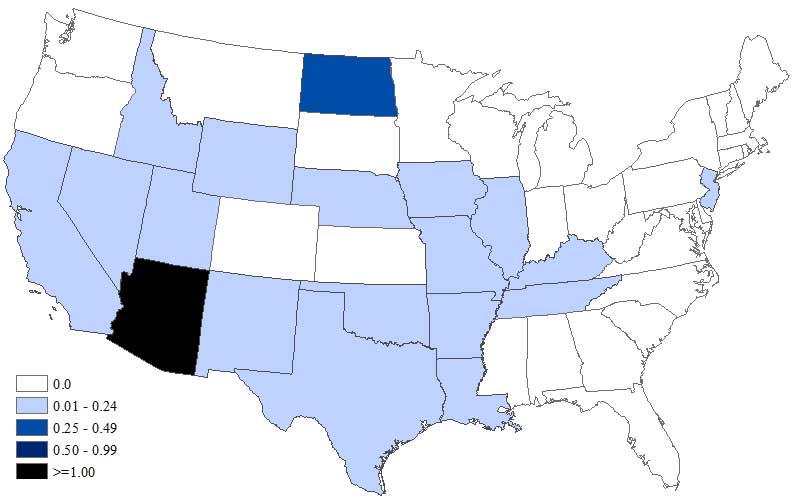
Man paralyzed by West Nile shares harrowing tale
05/02/2008 11:39 AM MDT
Mel Lacy on his long road to recovery
BOISE - Summertime will soon be here and so will those blood-sucking mosquitoes. Since West Nile virus first appeared in Idaho – thousands of people have been infected.
One of those people – Mel Lacy, shared his struggle with the potentially debilitating virus.
Doctors diagnosed Lacy with West Nile on his wedding anniversary in August of 2006.
Later that month he was admitted to the hospital because he couldn't stop throwing up.
Two months later he woke up paralyzed from the neck down.
“It feels weird I feel like I am falling forward,” Lacy said.
Lacy fights everyday to overcome the affects of West Nile - working to gain muscle in his arms and legs.
“When he first came in he had the tracheotomy he was in a wheel chair pretty much totally dependant for all his mobility,” said physical therapist Jill Harris, St. Luke’s Idaho Elks Rehabilitation Services.
Lacy hasn't been able to walk on his own since 2006.
That summer this 51-year-old handyman, who loved to build cabinets, fell asleep one night and woke up with a mosquito bite and West Nile.
A couple months after his diagnosis, Lacy realized how serious the virus could be.
Idaho West Nile cases
- 2003: First human case
- 2004: Three cases
- 2005: 13 cases
- 2006: 1,000+ cases
- 2007: 132 cases
- 24 Idahoans have died from West Nile virus
“I couldn't move anything but my head,” he said.
It was a period of time that changed Lacy’s life and his family's forever.
“He was real ‘do it all and do it yourself’ and always did everything for us and to have to do everything for him is odd,” Lacy’s daughter Melissa Olson said.
Through therapy, Lacy has regained some of his independence and now has more mobility on the top half of his body.
He is breathing on his own and using his hands to accomplish everyday tasks.
“I have no lift to my arms this way so if I need to eat I have to pivot this arm to get my arm up or to shave,” Lacy said.
For Lacy, the fight after the bite is one of the toughest battles of his life.
“I had cancer at age 34 that they said I wouldn't live through (it), and I thought I had done my hard part in life and I passed those odds and then when I got this I thought well, there's really a challenge,” he said.
It is a struggle physically and emotionally.
“They do have antidepressants that help,” he said. “But I really believe its my faith that gets me by where I am.”
Lacy hopes by telling his story he can save others from getting the West Nile virus. His daughter says her dad’s experience has changed her habits.
“I make sure I douse with DEET and wear long sleeves,” Olson said. “It’s worth it because I don't want to end up in a chair like my dad.”
A chair Lacy is working to get out of.
“He gives 100 percent he does what he can to get better and I know someday he will meet his goals because he is determined,” Harris said.
“The dream is still there,” Lacy said. “Now I am just concentrating on trying to get better.”
Lacy says insurance companies estimate his health care costs have exceeded $750,000 and that does not include his prescriptions.
Because of West Nile, Lacy has been dropped by all insurance companies so now he has to cover the costs on his own.
He hopes to be eligible for Medicare later this year so he can afford to get back to physical therapy on a routine basis.

